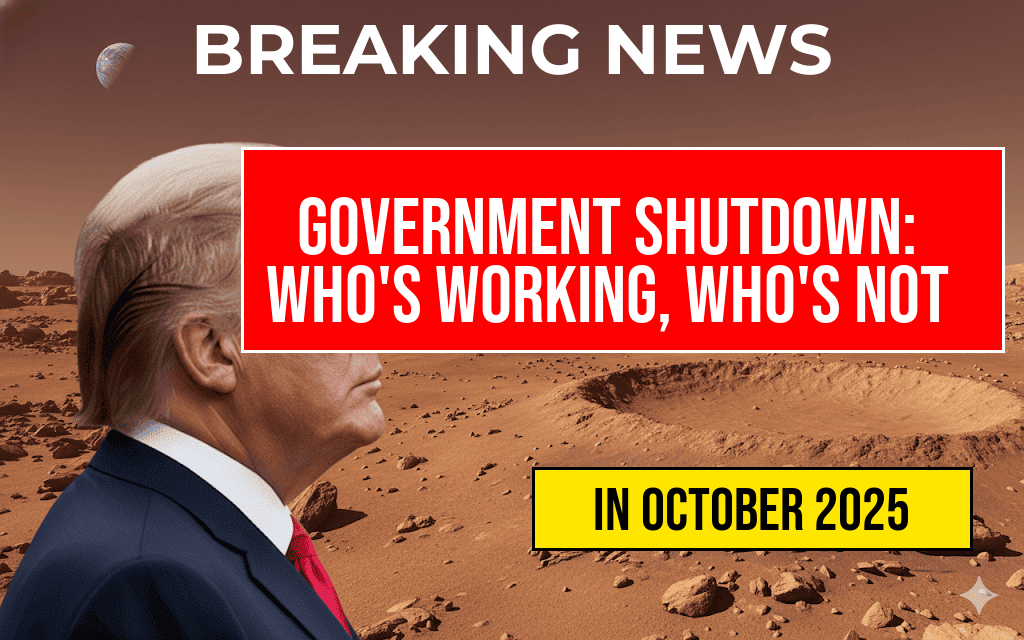The potential for a government shutdown has raised significant concerns across various sectors, impacting millions of Americans as federal agencies prepare to adjust their operations. As Congress struggles to reach an agreement on budget appropriations, agencies like the Social Security Administration, the Internal Revenue Service (IRS), the Department of Defense, and the Transportation Security Administration (TSA) are bracing for potential disruptions. This article provides a detailed breakdown of which federal employees will continue to work and which services may be affected should a shutdown occur, shedding light on the intricate balance between government functionality and budgetary challenges.
Federal Agency Operations During a Shutdown
During a government shutdown, agencies are categorized based on their essential services and funding mechanisms. The following sections outline the operational status of key federal agencies.
Social Security Administration
The Social Security Administration (SSA) is classified as an essential service. Despite potential staffing reductions, SSA employees will continue to process benefit payments and manage critical operations. However, new applications may face delays.
Internal Revenue Service (IRS)
The IRS also maintains essential functions during a shutdown. Tax collection efforts will continue, but taxpayer services, including phone support and in-person assistance, may see significant reductions, potentially affecting millions during the tax season.
Department of Defense
The Department of Defense (DoD) will keep critical operations running. Active-duty military personnel will report for duty as usual, but many civilian employees could be furloughed. This could hinder various support services and operations, impacting military readiness.
Transportation Security Administration (TSA)
The TSA, responsible for airport security, is deemed essential. Airport screening personnel will continue working, although staffing shortages could lead to longer wait times for travelers. Airports may implement contingency plans to mitigate delays.
Impacts on Other Agencies
| Agency | Status | Potential Impacts |
|---|---|---|
| Social Security Administration | Open | Continued payments; delays in new applications |
| Internal Revenue Service | Open | Tax collection ongoing; reduced taxpayer services |
| Department of Defense | Open | Active military on duty; civilian furloughs possible |
| Transportation Security Administration | Open | Screening continues; potential for longer wait times |
| Environmental Protection Agency | Closed | Delays in regulatory activities and enforcement |
| National Parks Service | Closed | All parks and recreational areas shut down |
Essential vs. Non-Essential Employees
When a government shutdown occurs, the distinction between essential and non-essential employees becomes crucial. Essential employees are those whose work is necessary to protect life and property. Non-essential employees, on the other hand, may be placed on furlough until funding is restored.
Healthcare and Public Safety
Agencies involved in public health, such as the Centers for Disease Control and Prevention (CDC) and the Food and Drug Administration (FDA), will have limited functionality. While critical health and safety operations will continue, many ongoing research projects and non-emergency inspections may be delayed.
Impact on State and Local Governments
A shutdown can also have ripple effects on state and local governments that rely on federal funding. Programs tied to federal grants may face interruptions, affecting services such as education, transportation, and social services.
Public Reaction and Future Considerations
The prospect of a government shutdown has prompted discussions among policymakers and the public about the need for more effective budgetary processes. As citizens await further developments, many are left wondering how prolonged inaction could affect their lives. The ongoing negotiations in Congress will be critical in determining the timeline for resolving budgetary issues.
For more information on the implications of a government shutdown, visit [GovTrack](https://www.govtrack.us/) or explore the latest updates from [Forbes](https://www.forbes.com/). Understanding the operational status of federal agencies can help citizens navigate potential disruptions effectively.
Frequently Asked Questions
What happens to Social Security services during a government shutdown?
During a government shutdown, Social Security services typically continue to operate as they are considered essential. Benefits will still be paid, and the processing of claims will continue, although some administrative functions may be impacted.
Will the IRS still process tax returns during a government shutdown?
No, during a government shutdown, the IRS may be limited in its ability to process tax returns and issue refunds. Some essential functions may continue, but many employees will be furloughed, leading to delays.
How does a government shutdown affect Defense operations?
Defense operations are largely considered essential, meaning that military personnel will continue to work. However, some civilian employees may be furloughed, potentially impacting certain non-essential services.
Will TSA operations be affected during a government shutdown?
The TSA is considered an essential service, so airport security operations will continue during a government shutdown. However, there may be impacts on staffing levels and resources.
What should I know about federal employees during a government shutdown?
During a government shutdown, many federal employees are furloughed, meaning they will not work and will not receive pay until the shutdown ends. Essential employees may continue to work but may face delayed paychecks.

Leave a Reply